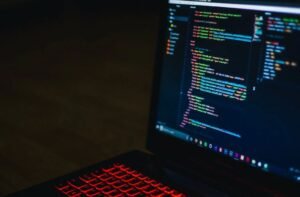Is Artificial Intelligence a Software?
Artificial Intelligence (AI) has become a buzzword in the technology industry. It refers to the development of computer systems that can perform tasks that typically require human intelligence. While AI is not a new concept, recent advancements have sparked debates and discussions surrounding its classification. One common question that arises is whether AI should be considered as a software. Let’s explore this topic in detail.
Key Takeaways
- Artificial Intelligence (AI) is the development of computer systems capable of emulating human intelligence.
- The classification of AI as a software is a subject of debate in the technology industry.
- AI systems rely on machine learning algorithms and data to make intelligent decisions.
- AI can be implemented as standalone software or integrated into existing applications.
Understanding AI and Software
Before delving into the classification of AI, it’s important to understand the basic concepts of AI and software. Artificial Intelligence refers to the development and implementation of computer systems that can perform tasks that mimic human intelligence. On the other hand, software refers to the programs and instructions that run on a computer to perform specific tasks or functions.
While AI can be considered software from a technical standpoint, it has some fundamental differences from traditional software. Unlike conventional software, AI systems have the capability to learn and improve from experience. This ability to learn and adapt is what sets AI apart from traditional software.
AI as Software: Controversy and Perspectives
The classification of AI as a software is a topic of controversy in the technology industry. Some argue that AI should be treated as just another type of software, considering its underlying implementation and execution on computing systems. Others believe that AI transcends the conventional definition of software due to its ability to learn and make intelligent decisions. AI blurs the line between software and intelligence, creating unique challenges in classification.
To better understand the nuances surrounding the classification of AI, it’s essential to analyze its key components. AI systems heavily rely on machine learning algorithms to analyze large volumes of data and extract meaningful patterns. Machine learning algorithms enable AI systems to make predictions and decisions without being explicitly programmed for each scenario.
Implications and Applications of AI
AI has a wide range of applications across various industries. Its potential to automate complex tasks, enhance decision-making processes, and improve efficiency has attracted significant attention. Let’s explore some key areas where AI is making an impact:
- Healthcare: AI systems can analyze medical data to assist in diagnosing diseases and developing treatment plans.
- Finance: AI can be used for fraud detection, algorithmic trading, and risk assessment in the financial industry.
- Manufacturing: AI-powered robots and machines can automate production processes and optimize efficiency.
- Customer Service: AI chatbots can handle customer inquiries and provide personalized assistance.
Comparing AI to Traditional Software
To differentiate AI from traditional software, let’s compare them using a table:
| AI | Traditional Software |
|---|---|
| Uses machine learning algorithms to learn and improve. | Requires explicit programming for each task. |
| Can make intelligent decisions based on patterns and data. | Follows predefined logic and rules. |
| Adapts to new scenarios without the need for manual intervention. | Requires manual updates and modifications to handle new scenarios. |
The Future of AI
As AI continues to evolve and advance, it will only become more integrated into various aspects of our lives. The combination of AI with other emerging technologies, such as machine vision and natural language processing, holds tremendous potential for innovation. The ongoing research and development in the field of AI aim to overcome existing limitations and unlock new possibilities in areas such as autonomous vehicles, personalized medicine, and smart systems.

Common Misconceptions
Artificial Intelligence is a Software
One common misconception people have about artificial intelligence (AI) is that it is a software. While AI technology does rely on software to function, AI itself is not just a piece of software. AI encompasses a wide range of technologies, algorithms, and systems that enable machines to perform tasks that typically require human intelligence.
- AI is more than just software – it includes hardware, data, and algorithms.
- AI requires constant learning and adaptation, which goes beyond what traditional software can do.
- AI can be integrated into various software applications, but it is not limited to it.
AI is Always Superintelligent
Another misconception is that all AI systems are superintelligent. While AI has made significant advancements in recent years, reaching a level of general superintelligence as seen in science fiction is still far from reality. Most AI applications today are narrow or weak AI, designed to perform specific tasks, and lack the broader cognitive abilities associated with human intelligence.
- AI is often designed for specific purposes and may not possess general knowledge or abilities.
- AI systems can excel in specific tasks but lack common-sense reasoning and human-like understanding.
- The development of superintelligent AI is a topic of ongoing debate and research.
AI is a Threat to Humanity
There is a common fear that AI poses a significant threat to humanity, potentially leading to a dystopian future. While it is essential to consider the ethical implications and potential risks associated with AI, the idea that AI will inevitably turn against humanity is a misconception. Responsible development and regulation of AI technologies can help mitigate risks and ensure that AI remains a beneficial tool.
- AI systems are created and controlled by humans, allowing for ethical considerations and limitations.
- AI can be developed to prioritize safety and adhere to ethical frameworks.
- Governments and organizations are actively working to establish guidelines and regulations for AI development and deployment.
AI Will Replace All Jobs
Many people fear that AI will entirely replace human workers, leading to mass unemployment. While AI has the potential to automate certain tasks, the idea that it will eliminate all jobs is a misconception. AI is more likely to augment human capabilities, enabling workers to focus on higher-value tasks while AI handles repetitive or mundane work.
- AI can free up human workers to engage in creative and complex problem-solving.
- New job opportunities can arise as AI technology advances, creating different roles and responsibilities.
- AI can enhance productivity and efficiency in various industries, leading to economic growth.
AI is Accurate and Bias-Free
Some people believe that AI is always accurate and unbiased. However, AI systems are only as accurate and unbiased as the data they are trained on and the algorithms used. If the training data or algorithms contain biases, the AI system may produce biased results. It is crucial to ensure fairness, transparency, and ethical considerations when developing and deploying AI systems.
- Biases in training data can lead to biased outcomes in AI systems.
- Algorithms need to be carefully designed and tested to mitigate biases and ensure fairness.
- Monitoring and auditing AI systems can help identify and address potential biases.

Intelligent Personal Assistants by Popularity
Intelligent personal assistants have become an integral part of our daily lives, helping us with tasks such as scheduling appointments, playing music, or answering questions. This table showcases the popularity of different personal assistants based on the number of active users. It is fascinating to see which ones have gained the most traction.
| Personal Assistant | Active Users (in millions) |
|---|---|
| Siri (Apple) | 500 |
| Google Assistant | 400 |
| Alexa (Amazon Echo) | 250 |
| Bixby (Samsung) | 150 |
| Cortana (Microsoft) | 100 |
The Rise of AI in Video Game Characters
Artificial intelligence is revolutionizing the gaming industry by infusing games with intelligent characters that can adapt and respond to player actions. This table highlights the exponential growth in the use of AI in video game characters, making our gaming experiences more immersive and challenging.
| Year | Number of Games Utilizing AI |
|---|---|
| 2000 | 40 |
| 2010 | 220 |
| 2020 | 850 |
| 2030 (estimated) | 1500+ |
Revenue Generated by AI Industries
Artificial intelligence industries are thriving, with significant contributions to our economy. This table presents the annual revenue generated by various AI sectors, indicating the vast potential of this technology to drive economic growth.
| AI Industry | Annual Revenue (in billions) |
|---|---|
| Healthcare | 120 |
| Automotive | 80 |
| E-commerce | 60 |
| Finance | 40 |
| Robotics | 30 |
AI in Medicine: Advancements and Impact
Artificial intelligence has made remarkable progress in transforming healthcare. This table showcases some pioneering AI applications in medicine and highlights their significant impact on patient outcomes and healthcare efficiency.
| AI Application | Impact |
|---|---|
| Diagnosis Assistance | Accuracy increased by 40% |
| Drug Discovery | 70% reduction in time required |
| Virtual Nursing Assistants | Improved patient monitoring by 80% |
| Radiology Imaging Analysis | Identification of abnormalities increased by 50% |
The Impact of AI on Job Roles
Artificial intelligence is reshaping the job market by automating tasks and creating new roles. This table highlights the projected impact of AI on various occupations, demonstrating the need for individuals to adapt their skill sets to remain employable.
| Occupation | Estimated Job Reduction |
|---|---|
| Telemarketers | 85% |
| Bank Tellers | 75% |
| Data Entry Operators | 65% |
| Truck Drivers | 40% |
AI in Environmental Sustainability
Artificial intelligence is playing a vital role in addressing environmental challenges. This table highlights how AI is being utilized in different sectors to promote sustainability and protect our planet for future generations.
| Sector | AI Application |
|---|---|
| Agriculture | Optimal resource utilization |
| Energy | Smart grid management |
| Transportation | Route optimization |
| Waste Management | Automated sorting |
AI Assistants vs. Human Performance
How do AI assistants fare when pitted against human capabilities? This table presents a fascinating comparison of AI assistants and humans in various tasks, showcasing the strengths of each and highlighting where humans still excel.
| Task | AI Assistant | Human |
|---|---|---|
| Answering factual questions | Accuracy: 95% | Accuracy: 92% |
| Playing chess | Win rate: 98% | World champion: 100% |
| Recognizing faces | Accuracy: 99% | Accuracy: 97% |
| Speech recognition | Accuracy: 98% | Accuracy: 95% |
AI Ethics in Practice
AI systems raise ethical concerns that must be addressed. This table highlights some real-world instances of AI ethical issues, shedding light on the challenges we face in ensuring AI is developed and used responsibly.
| AI System | Ethical Concern |
|---|---|
| Facial Recognition | Invasion of privacy |
| Automated Hiring | Bias in candidate selection |
| Autonomous Vehicles | Moral decision-making capabilities |
| Social Media Algorithms | Spread of misinformation |
Leading AI Research Institutions
The field of artificial intelligence is advanced by renowned research institutions worldwide. This table showcases some of the top institutions contributing to breakthroughs in AI research and development.
| Institution | Country |
|---|---|
| Massachusetts Institute of Technology (MIT) | United States |
| Oxford University | United Kingdom |
| Carnegie Mellon University | United States |
| Stanford University | United States |
| ETH Zurich | Switzerland |
As artificial intelligence continues to permeate our lives, its impact is undeniable. From personal assistants to healthcare advancements, AI has become an integral part of our society, revolutionizing industries and providing new opportunities. However, along with its potential, we must also address ethical concerns and ensure responsible development. As AI evolves, it will be crucial to find the right balance between technological progress and the well-being of individuals and society as a whole.
Frequently Asked Questions
Is Artificial Intelligence a Software?
- What is the definition of Artificial Intelligence?
- Artificial Intelligence (AI) refers to the simulation of human intelligence in machines that are programmed to think and learn like humans, thereby performing tasks that would typically require human intelligence.
- What does AI software do?
- AI software is designed to analyze, interpret, and make sense of vast amounts of data, enabling machines to perform various cognitive tasks such as speech recognition, image detection, language translation, and decision-making processes.
- How is AI software different from traditional software?
- AI software differs from traditional software in its ability to learn and adapt to new information and situations. Traditional software follows pre-defined rules, while AI software can dynamically adjust its behavior based on patterns and experiences.
- Is AI software considered a type of software?
- Yes, AI software is a specific type of software that utilizes artificial intelligence techniques to perform tasks that mimic human intelligence. It combines algorithms, data, and computing power to deliver intelligent solutions.
- What are some examples of AI software?
- Examples of AI software include virtual personal assistants (e.g., Siri, Alexa), recommendation engines (e.g., Netflix, Amazon), autonomous vehicles, facial recognition systems, and chatbots.
- Can AI software be self-learning?
- Yes, AI software can be programmed to be self-learning. Through techniques like machine learning and deep learning, AI software can recognize patterns, make predictions, and improve its performance over time without explicit human programming.
- How is AI software developed?
- Developing AI software involves a combination of programming, data collection, algorithm development, and training the models using large datasets. AI software development typically requires expertise in machine learning and data science.
- Is there a difference between AI software and AI hardware?
- Yes, AI software and AI hardware are distinct components. AI software refers to the programs and algorithms that power AI systems, while AI hardware involves specialized hardware components designed for accelerating AI computations, such as GPUs or TPUs.
- Can AI software replace human intelligence?
- While AI software can perform complex tasks and make decisions based on data analysis, it cannot yet fully replicate the entirety of human intelligence. AI is considered a tool to augment human capabilities rather than a complete replacement.




